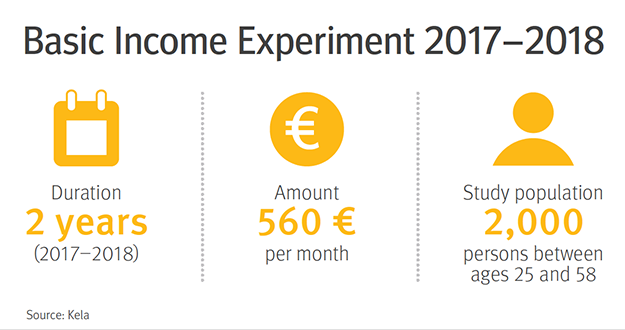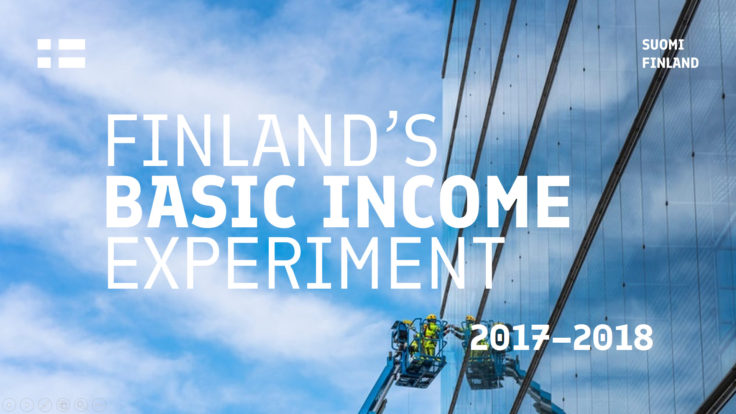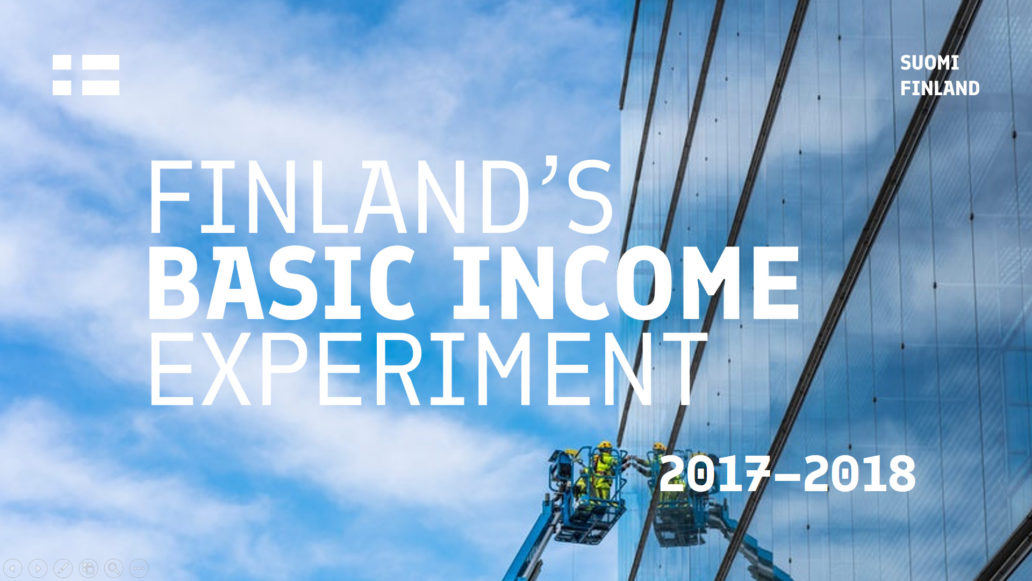Finland launched a two-year basic income experiment in 2017. Basic income is one example in a long line of public policy pilot experiments that seek to produce information to support decision-making.
In Finland, income security is guaranteed to everyone. However, the basis of the current social security system was laid down in a different time. Experimentation with new ideas can lead to solutions that better fit present-day challenges.
WHY EXPERIMENT?
Atypical employment relationships are becoming increasingly common, and although Finland has an extensive social safety net, it doesn’t fully cater to the needs of modern working life.
The aim of the basic income experiment was to find out if the social security model could be simplified, explore more flexible ways of accepting employment, and to find out how financial incentives affect the acceptance of job offers. At present, finding a job doesn’t necessarily increase the income of an unemployed person, because earnings lower social benefits.
HOW IT WAS DONE
A total of 2,000 people were randomly selected for the basic income experiment. For a period of two years, the participants received a monthly basic income of 560 euros. The participants received this sum automatically every month, regardless of whether they had some other income or not, without any needs assessment, and with no conditions attached. Furthermore, they were not required to pay tax on basic income.
The recipients of a basic income were selected through random sampling among those who in November 2016 received an unemployment benefit. The control group consisted of those who in November 2016 received an unemployment benefit but were not selected for the experiment.

ANALYSING THE DATA
During the trial, data on the employment, market income, registration as a jobseeker, participation in employment promotion measures and social benefit take-up of the participants was gathered.
Analysis of the effects begun in January 2019 after the experiment had ended. The effect of basic income on the employment rate and wellbeing of the participants was evaluated.
THE RESULTS
The employment effects of the basic income experiment were measured for the period from November 2017 to October 2018. The employment rate for basic income recipients improved slightly more during this period than for the control group. During the reference period, the basic income increased the number of days of employment by 6 days and the basic income recipients were employed for 78 days on average.
However, the interpretation of the employment effects of the experiment was complicated by the introduction of a new activation model in 2018.
The effects of the basic income experiment on wellbeing were studied through a phone survey. Survey respondents who received a basic income described their wellbeing more positively than respondents in the control group. They were more satisfied with their lives and experienced less mental strain, depression, sadness and loneliness. They also had a more positive perception of their cognitive abilities, i.e. memory, learning and ability to concentrate. In addition, they had a more positive perception of their income and economic wellbeing, and were more likely to find their financial situation more manageable than the control group.
EXCEPTIONAL EXPERIMENT
The basic income experiment was an exceptional social experiment both domestically in Finland and internationally in that it was set up as a nation-wide, randomised field experiment. Participation in the experiment was not voluntary, which means that it is possible to draw more reliable conclusions of the effects of the experiment than was the case in previous experiments which were based on voluntary participation.
Even though the basic income model developed for the experiment is not likely to be adopted as such for more extensive use, the data from the experiment can be used to reform the Finnish social security system. The lessons learned while planning and implementing the experiment provide a solid base for the planning of new ambitious social experiments.

More information
You can read more about the basic income experiment on the website of Kela, The Social Insurance Institution of Finland.









